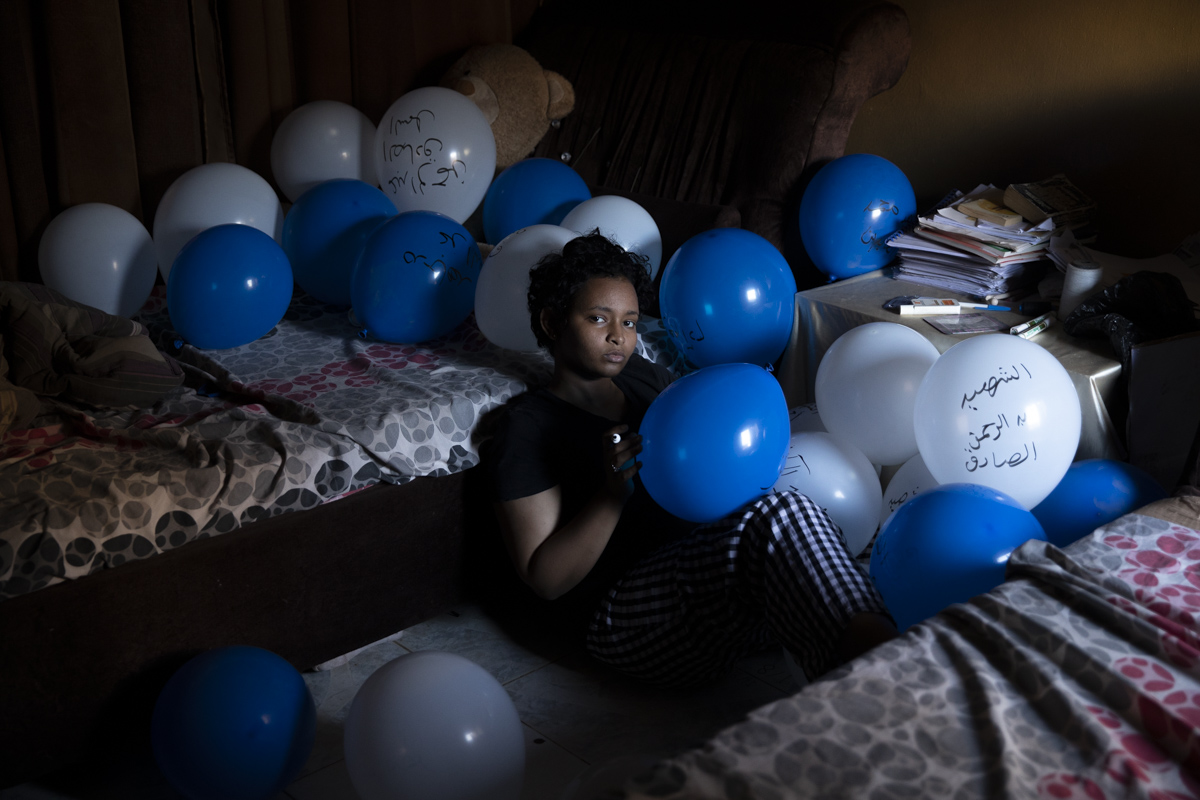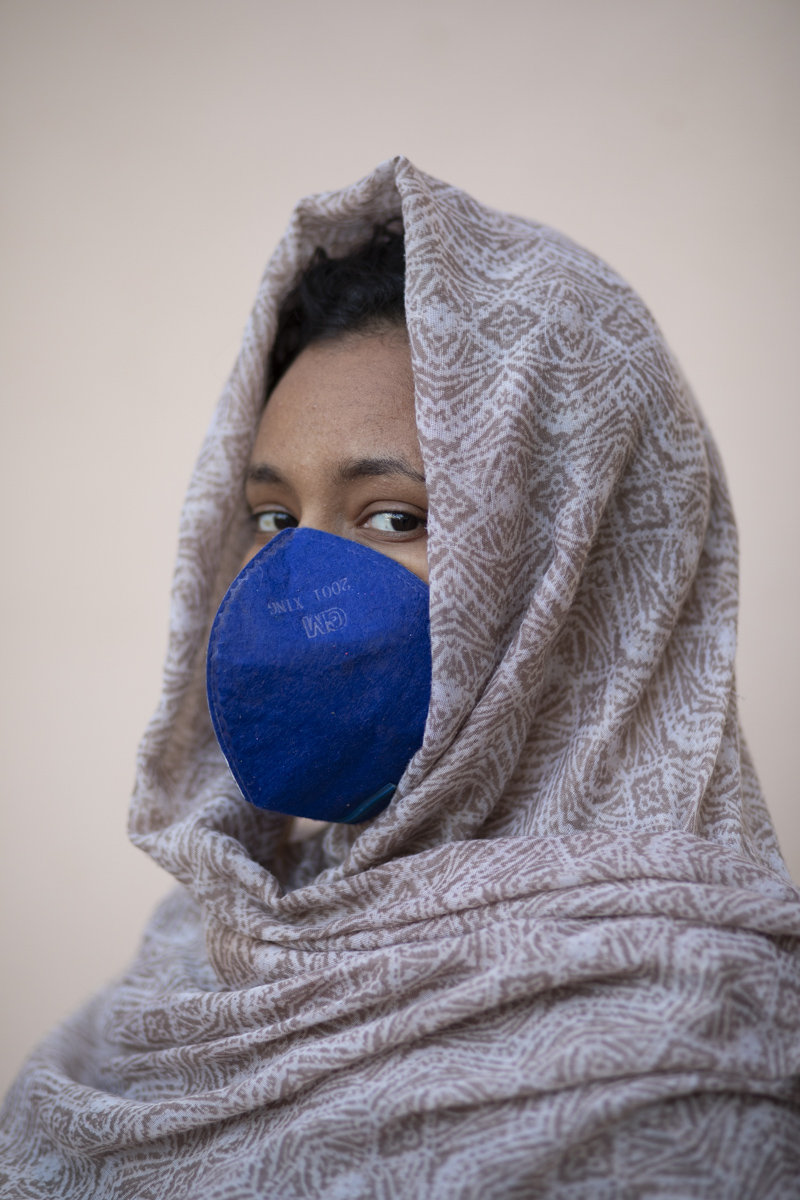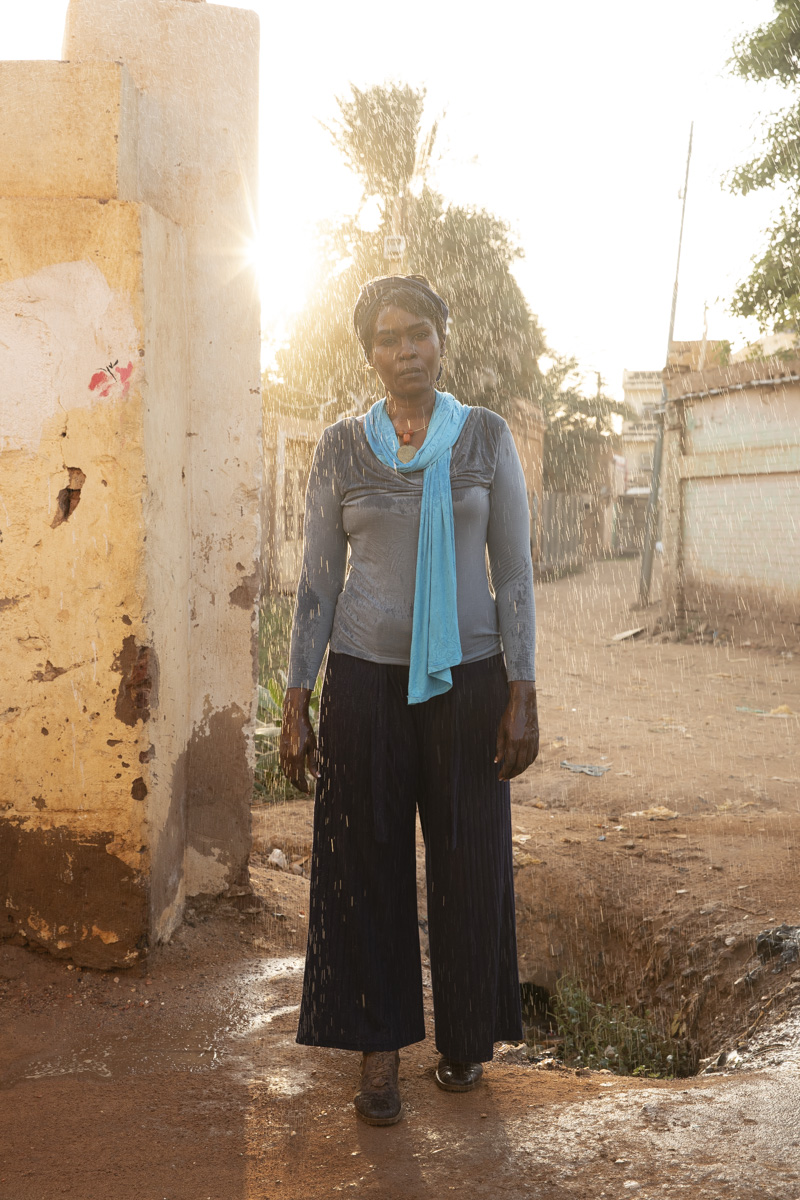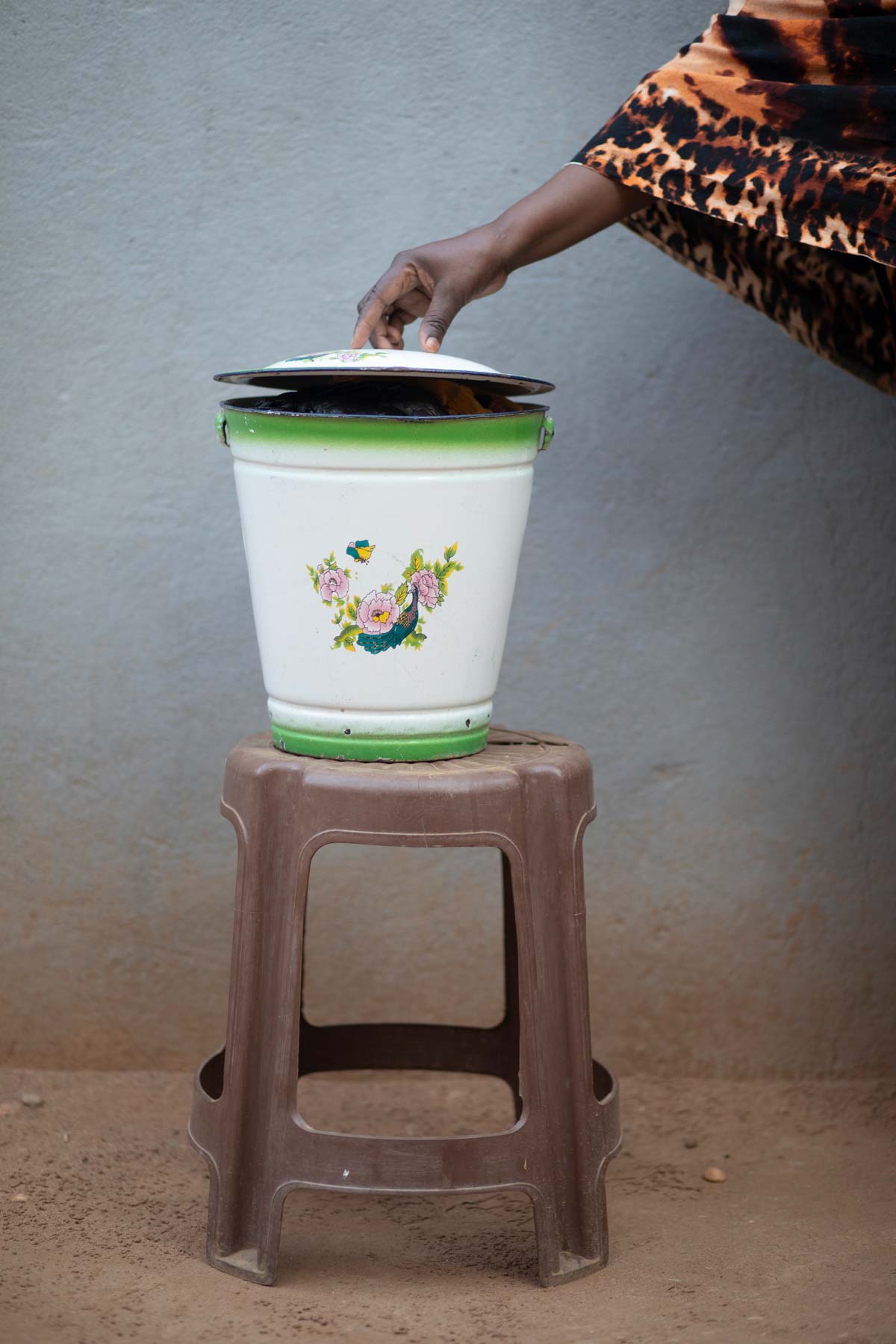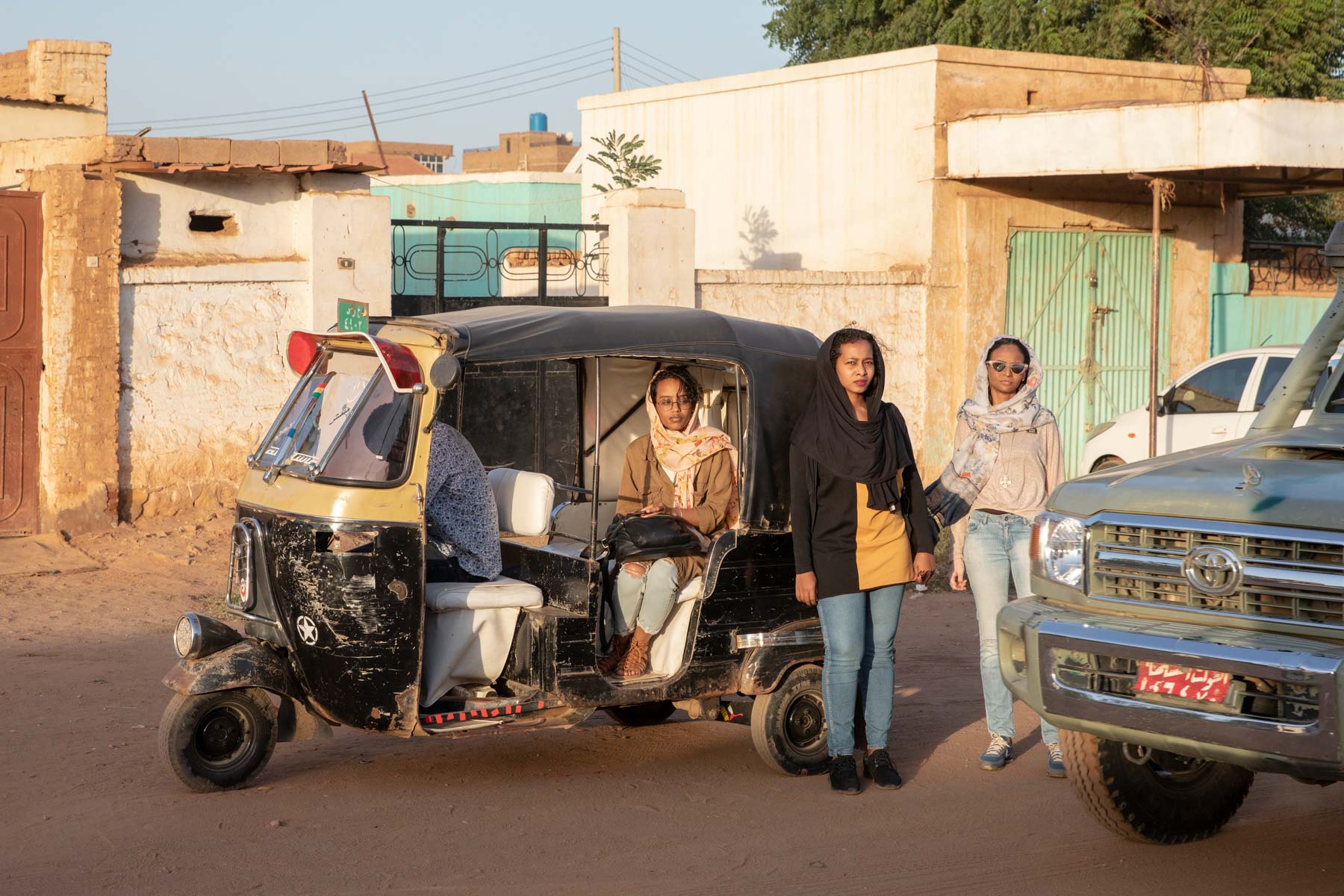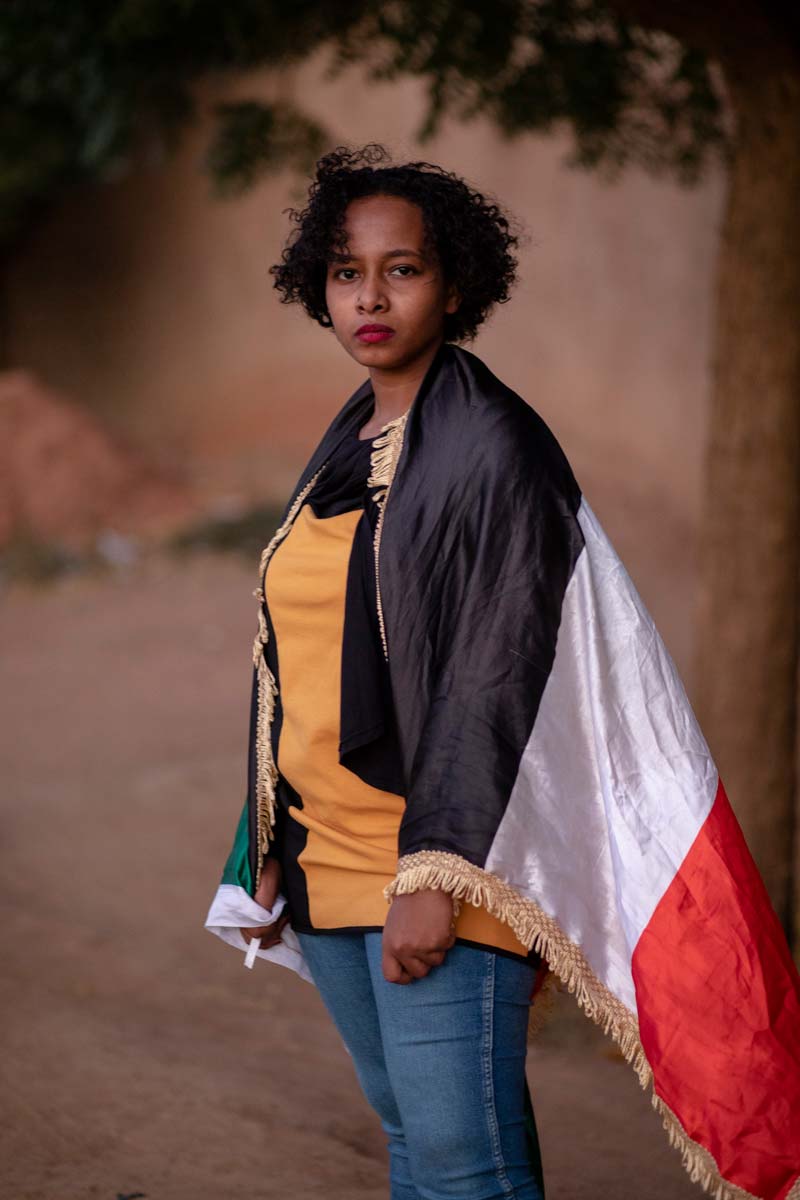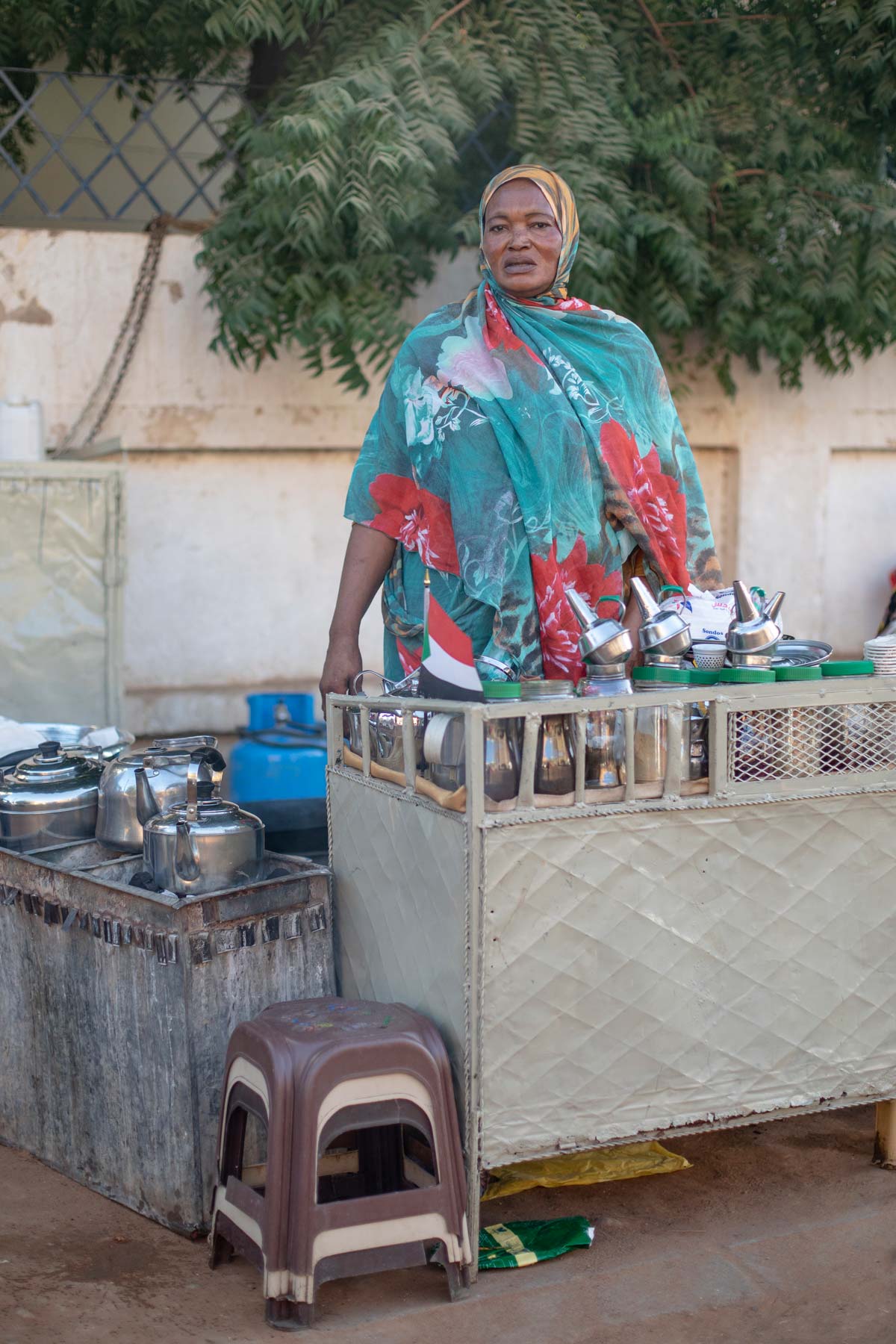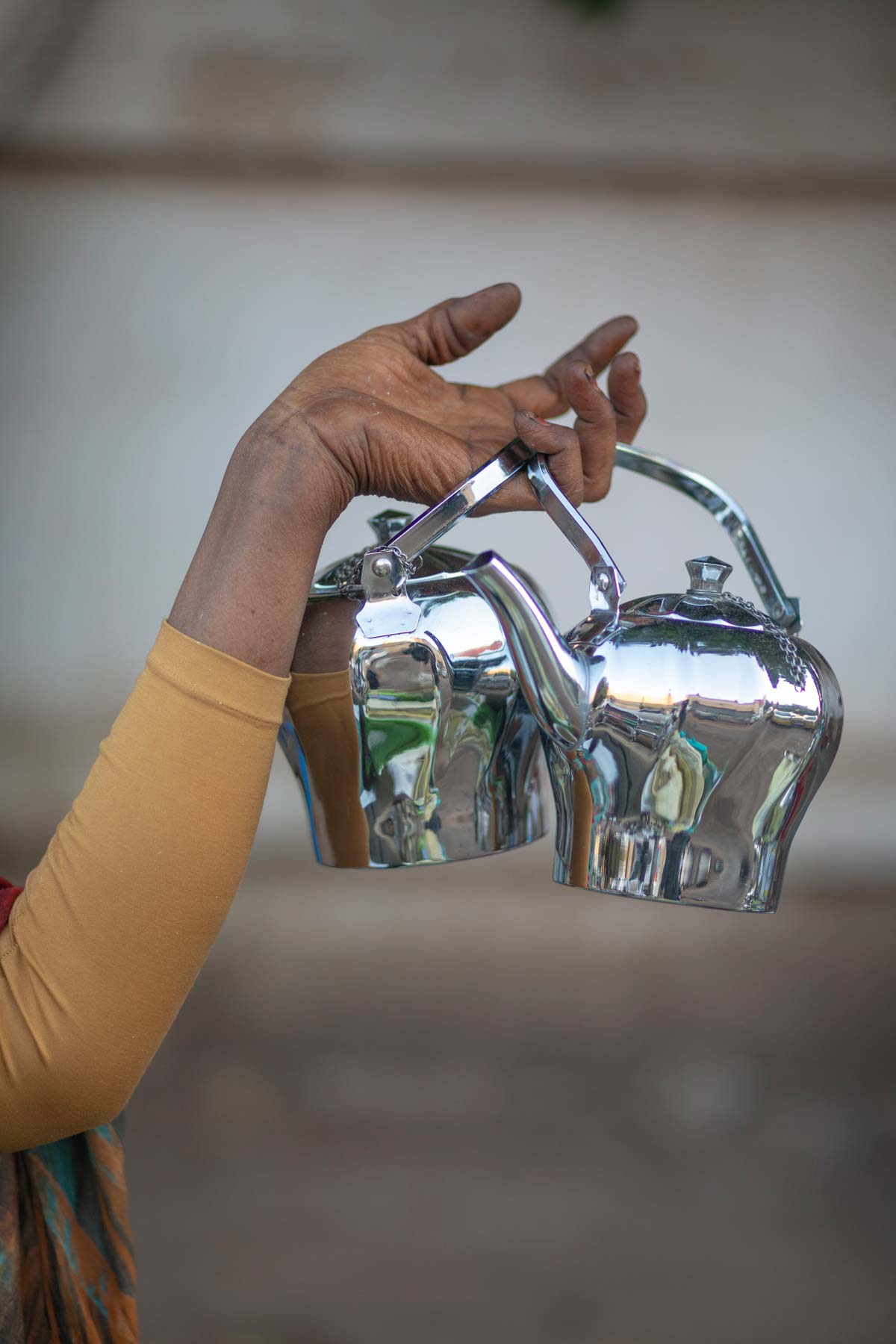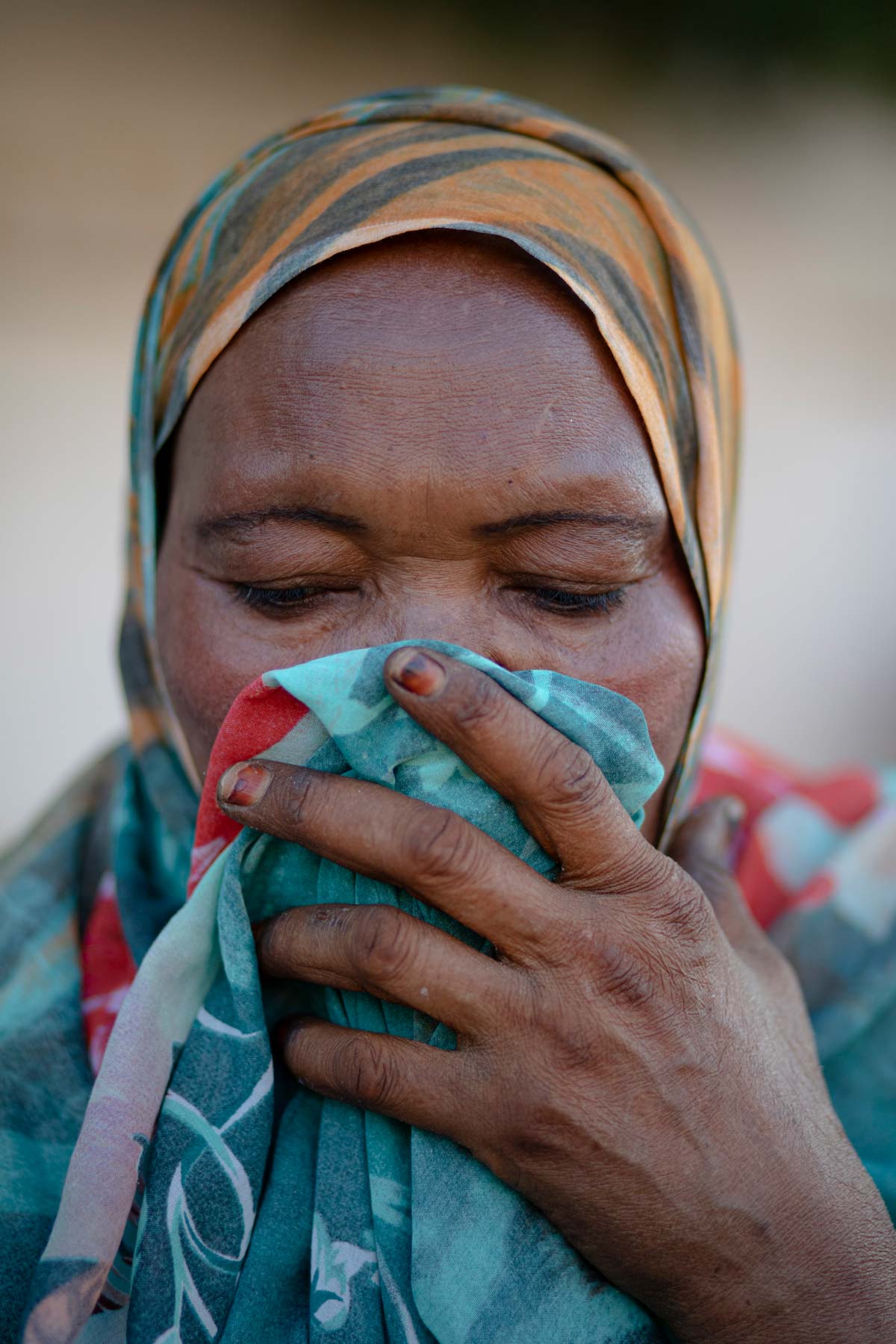>> STORIES | Kandaka – Women of the Sudanese Revolution
Sudan, 2019
Omar al-Bashir was the authoritarian president of Sudan for three decades. In 2019, the Sudanese people peacefully took to the streets and demanded his resignation. The security forces ended the protest with a massacre: on 3 June 2019, 128 people were killed; more than 70 were raped. In the meantime, a transitional government comprising civilian and military representatives has formed, but the struggle continues.
About half of the activists were female, fighting – not only for democracy and freedom, but also for equal rights in a country where women could get lashed for wearing pants or smoking cigarettes publicly. Kandaka was the title of the ancient Nubian warrior queens, but became a synonym for the female revolutionaries who played an important role on all fronts of the revolution.
Helena Lea Manhartsberger shares the stories of five women of different generations and backgrounds who participated in the Sudanese Revolution in different ways. In collaboration they recreated situations and staged portraits based on their memories. In addition to the portraits Helena documented objects and places which were of special importance for the protagonists. These very personal stories create a picture of oppression and liberation, frustration and hope of women one year after the uprising started.
“I couldn’t eat, or sleep. I just kept inflating balloons and writing down the names of people I knew that were killed.”
Iman Osama
In the sit-in my job was protecting the barricades and nothing but the barricades. I had all my mind and heart focused that they won’t be removed under any circumstances. I have also done that on the 2nd of June, the day before the massacre happened. I went back home around 2 am. There were rumours that the camp would get dispersed, but people were talking about this the last weeks, so no one believed it anymore. I called my friends and checked if everyone is fine and the situation was safe around 2:30, then I went to sleep.
The next morning I woke up late. It was around 11pm when my sister called and told me about the disperse and the massacre. I opened twitter and the first thing I saw was a picture of my close friend Kesha, this couldn’t be true – I couldn’t believe it. I tried to write him, to call him. I asked around on Twitter and Facebook, I tried to call friends, but nobody picked up. The timeline was full with pictures of him and other martyrs, but I wanted to have proof. Finally someone posted a picture of his body as an answer to my post. I was in total shock and tried to reach my friends. All their names came up in my head and I thought that all would be dead. I saw videos of people getting shot, blood everywhere; so many dead bodies in front of the military headquarter. I saw all the tweets of people looking for their relatives. It was horrible, I couldn’t stay at home, I was so angry – I had to go out on the streets. I spent most of the time at the sit-in the last month. It felt really home there, much more than my room. I ran outside, the streets were all blocked, people were screaming callings for the martyrs or just sitting there, we didn’t know what to do. The Internet was already off at that moment.
I just wanted to do something, wanted to have my friends around me. It was actually planned for the next day when we would celebrate Eid (end of the fasting month Ramadan) the next day: To fly a million balloons for the martyrs who died before. So I went to a shop and bought a lot of balloons. I was in shock when I started to inflate balloons and called my friends again and again. I didn’t even want to talk, I just wanted to check who is dead and who is alive. I couldn’t eat, or sleep. I just kept inflating balloons and writing down the names of people I knew that were killed. I lost two close friends that day and so many people I have spent the last months with died. I didn’t leave my room for the next weeks, but the balloons kept me company.
Iman wore her scarf and mask at demonstrations. She says: „At manifestations most people wore pale colors because the National Intelligence Service NISS would discover people in bright colors and go after them. During a protest, the NISS caught me. Firstly they hit me hard and forced me into a truck. Then they started verbally abusing and harassing me. One of them took my scarf, wound it around my entire face and neck and tried to choke me, then they beat me and left me somewhere in the street.“
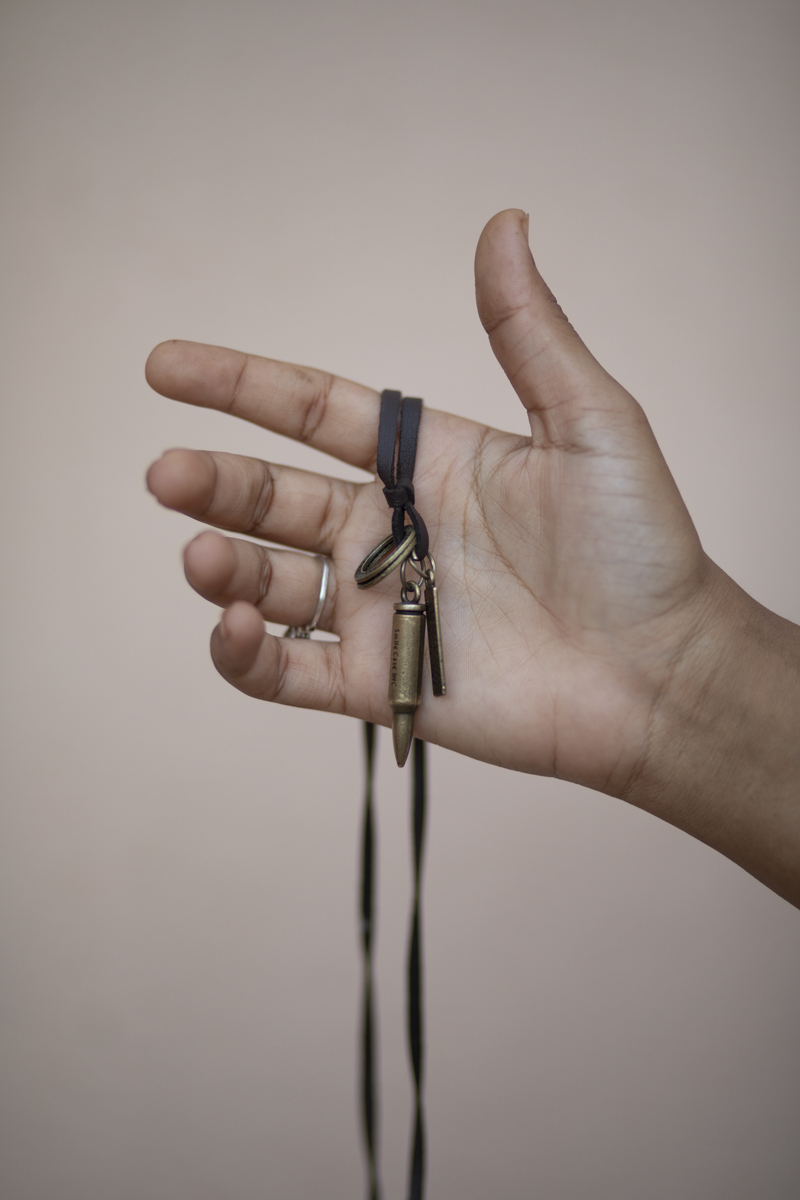
„I think someone gave me this necklace at the sit-in. I feel like I`ve had it for ages. I held it tight at the sit-in when I was afraid of shots, when I cried, when I felt alone. I held it when I heard a mother telling their children that this was the safest place in the world and that all the people around us army or protesters were protecting us. I held it when the sit-in was dispersed, when people died. I held it when I was afraid, when I fought and when I surrendered.“
Nagda Mansour (39) translator, human rights activist
“Nature couldn’t defeat those guys, but bad cops could”
Nagda Mansour
My name is Nagda Mansour, I am originally from Darfur but I grew up in Khartoum. I was basically politically active my whole life. My brother is very political too; he also became a human rights activist. When I was a child, I got more stories about revolutions, than anything else.
In addition of fighting for the revolution, we women always had our own agenda. We had our own manifestations to fight for gender equality and for better representation in the political arena. One of my main concerns is the situation of the displaced women in the marginalized areas, who were already resisting the old regime in the beginning of the 2000s.
I remember one of the women rallies during Ramadan in Khartoum. It was the first day of the rain season; it was a very special day. We were hundreds of people from different women groups, movements and initiatives, protesting together on the streets for our demands on the new government. At the end of a long march it started to rain heavily but we continued walking towards the sit-in area. We were afraid that the sit-in wouldn’t stand the weather because there were not enough tents for all the people. But when we were heading inside, it showed me how strong the revolutionaries are. They started chanting, “Even if it rains, we will still remain!” Some of them were half naked, all totally wet, it was raining heavily, and the most people were looking for shelter under roofs or tents. But those people were chanting, singing, screaming, and welcoming us. They were so full of life and determination – I felt like the sit-in area will never be defeated. In that moment all my fears of something like that happening faded, it showed me that the fears I had, from the rain as a threat for the sit-in area were nothing compared to the determination of the revolutionaries – they were challenging nature. It’s painful but true, nature couldn’t defeat those guys, but bad cops could.
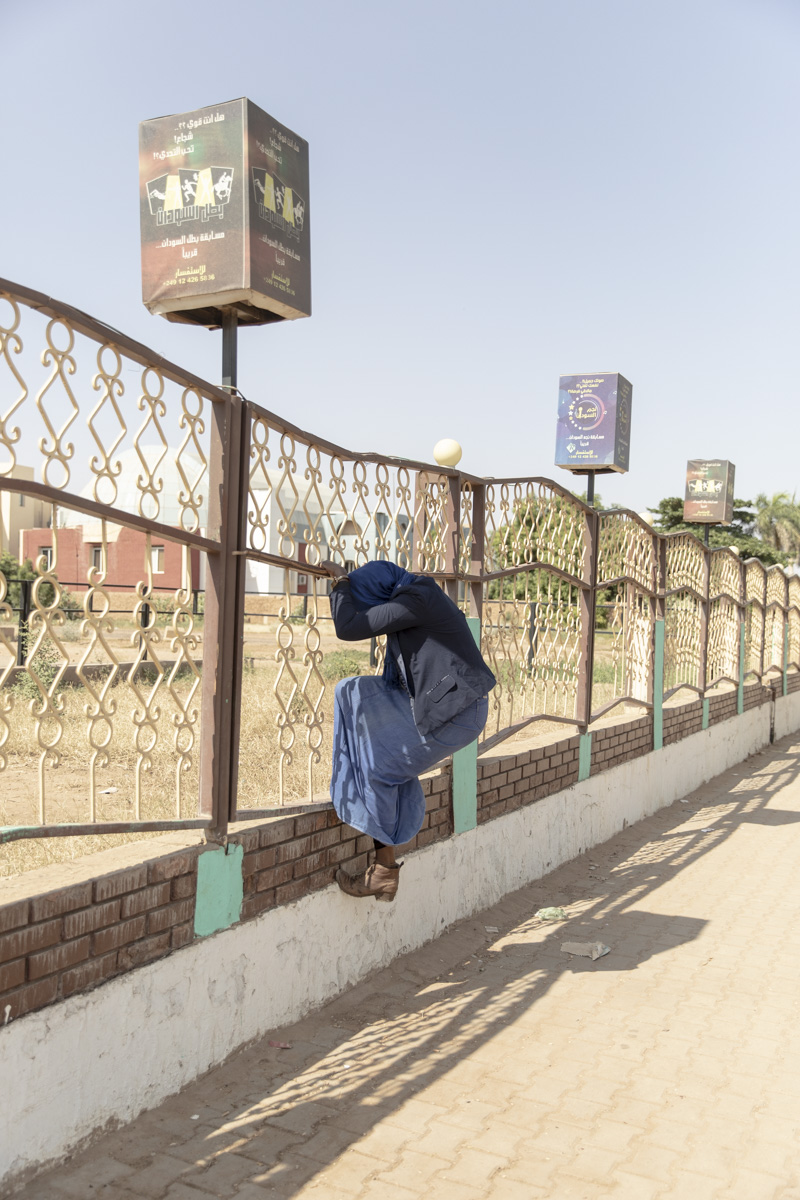
On 30th of June 2019 I joined a manifestation in Omdurman against the massacre that happened on 3rd of June. I was in between the building of the national assembly and the kids and youth palace when snipers started to shoot. I nearly got shot but luckily could escape through a hole in the fence. Together with some other women we ran to the next building which was a hospital. We found a place inside to hide, but heard that people were shot and beaten up by the military outside. We were sure that they would catch us, beat us and rape us, but we were lucky, they didn’t find us.
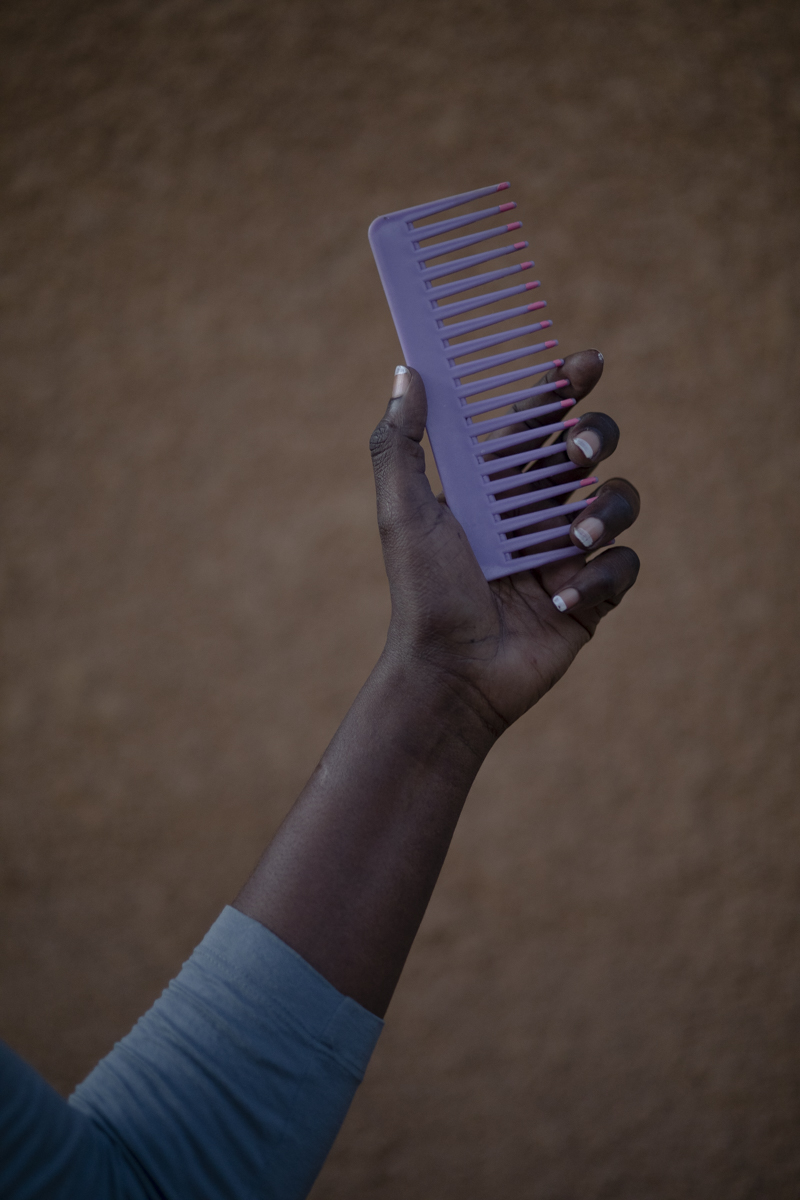
In December 2018 together with 21 woman leaders we brought a paper to the presidential palace, demanding al-Bashir to step down. We all got arrested for that. Even though we were treated much better than ordinary criminals it was very tough in there. We were 10 people in 5x5m cells, there were bats hanging from the ceiling, even to get soap was a struggle. We didn’t know how long they would keep us locked, so we started to use the time efficiently and found ways to cope with the long detention. Dr Rahiba, a psychiatrist, did group therapy with us. We made games and jewellery out of thrash, we even created a sport team to stay in shape and kill time. We were detained for 75 days and ironically we were released on international women’s day on the 8th of March 2019. When they told us that we were free, everyone tried to get a souvenir, I was lucky that I got this comb, it was the only comb for all of us, it was like a treasure – it’s a historical comb now.
Umhani Abdulgadir Ibrahim (56) Arabic teacher
“When I stepped down the stage,
I finally could breathe again”
Umhani Abdulgadir Ibrahim
My name is Umhani, I am an Arabic teacher and I have four children. My son Mohammed Ibrahim was shot while protecting the demonstration barricades at the sit-in on the 13th of May this year and became a martyr. After he was killed I reached a point where I was so angry that I would attack every soldier that came in my way, I didn’t care anymore about death. Some of the soldiers replied to my attacks. They said it wasn’t them who killed my son. Others just looked at me. I wanted to beat them, but always somebody hold me back.
I missed Mohammed so much that I decided that I have to go to the sit-in area, to the place that he defended with his own life. The neighbourhood resistance committee built up a tent only for me. It was the only place where I felt comfortable and I could feel that he is with me. There was a big open stage, I asked to speak out, because I was so angry and so sad, it was important for me to talk to the other protesters, but also to the killers of my son.
When I went on the stage the first time, I was very nervous of course, in the beginning it was hard to talk in front of thousands of people, but the crowd motivated and supported me. I could finally let out all my anger and grief, I said everything I felt, freely. I spoke from the bottom of my heart. This gave me so much energy. There was so much pain piling up inside me; I let it all out up there. When I stepped down the stage I could finally breathe again. I felt that I am not alone, that I have a lot of people by my side. I came back to the stage three more times after they dispersed the sit-in; I am sometimes speaking on events in the neighbourhood or at memorial days. To speak about what happened helps me a lot. There is a group for the families of martyrs. We meet or we chat on WhatsApp.
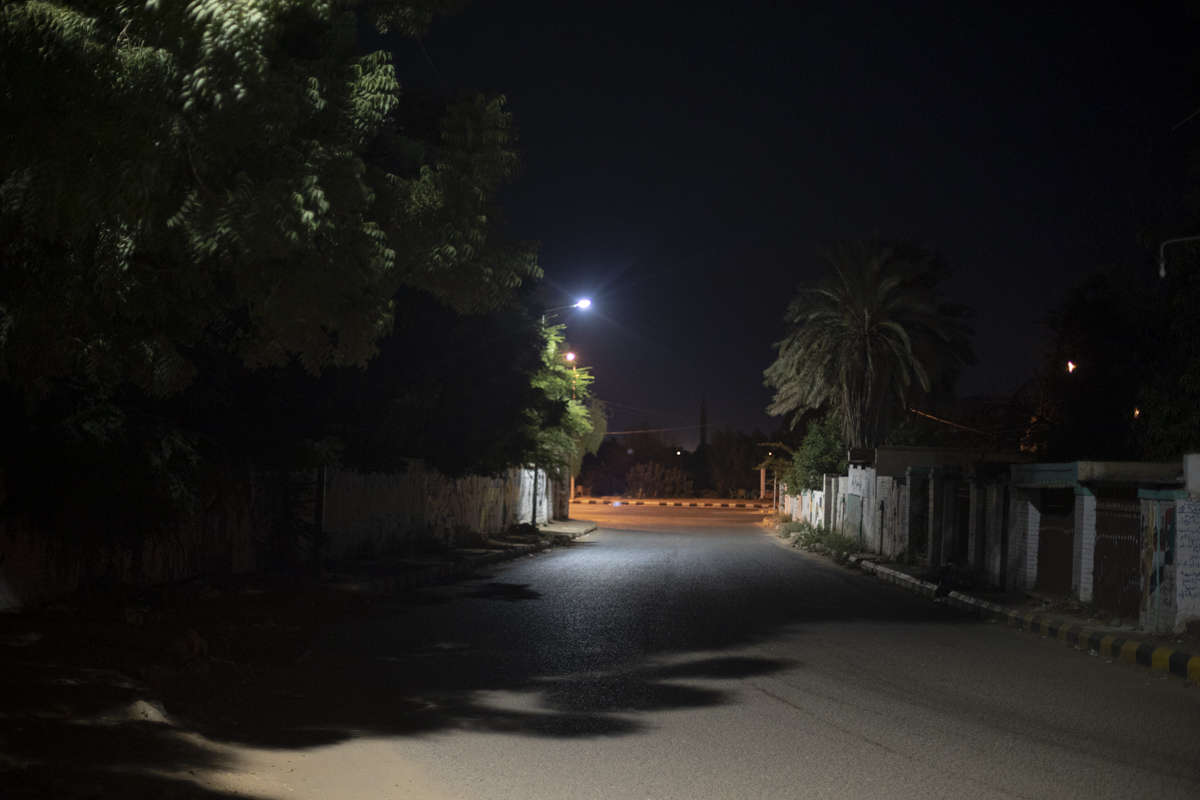
On 13th of May Mohammed Ibrahim was shot twice in the head and once in the chest by security forces around 7-8 p.m. when he protected barricades of the sit-in at Nile Street in Khartoum.
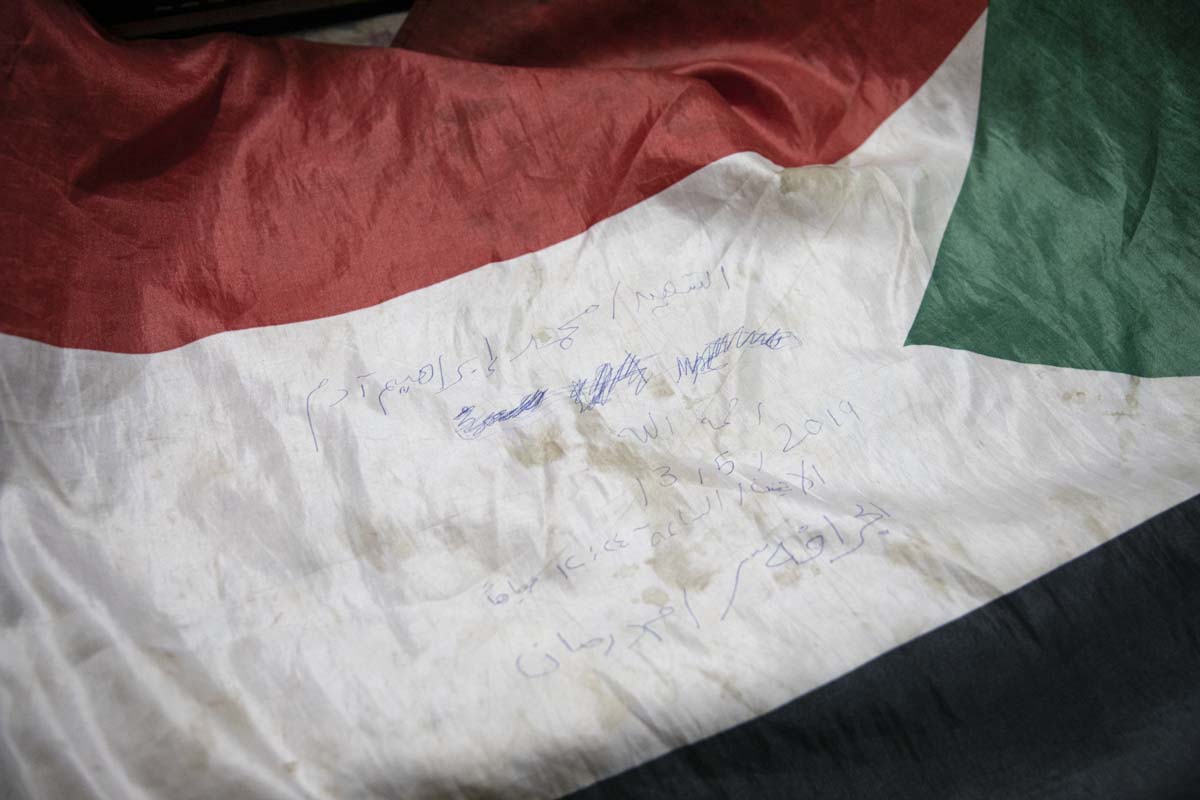
Mohammed wore this flag like a cape when he was shot. Afterwards it was used to cover his body; there are still sparkles of his blood on it. The doctors wrote down “May god have mercy on his soul“, the place, time and date of his death.
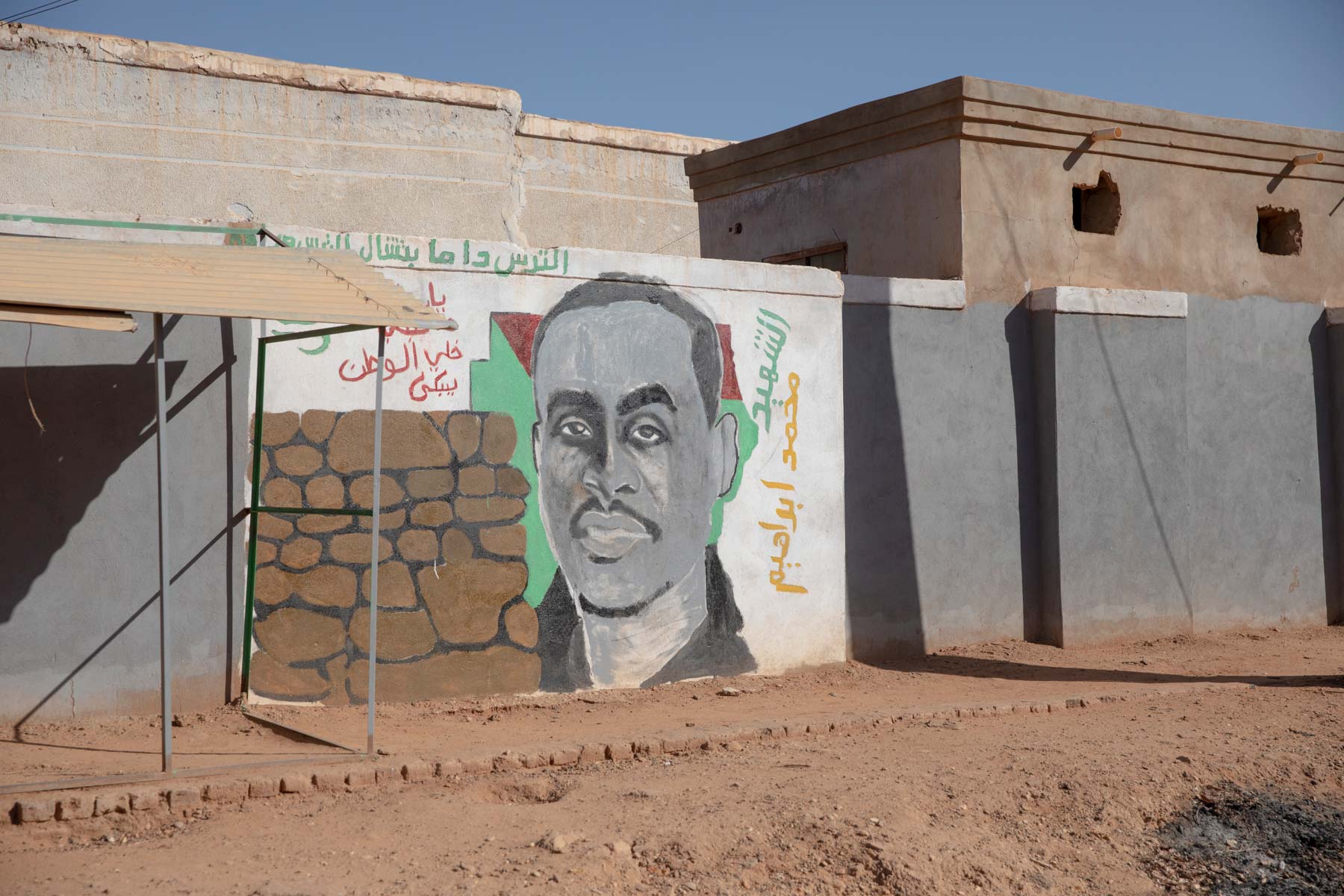
Mural on their house: Friends of Mohammed painted his portrait on the outer wall of his family house.
Wala Fadul (25) women rights activist, human resources system administrator
My name is Wala Fadul, I am working as a human resource system administrator at the bank of Khartoum. In my free time I volunteer for different women rights organizations and initiatives. The struggle of women in Sudan was my main focus in this revolution.
At one day in January I went to a demonstration with Azza and Hidayat, two friends of mine in Omdurman. The security forces were very aggressive and arrested so many people that day. We fled and ran into a house where people hid us. After some hours we decided to leave and take a ricksha to our car. When finally one stopped, the driver asked a lot of questions about if we have been protesting and so on. We told him that we just come from the salon to make our hair for a wedding later on. The girl who hided us pretended to be our cousin and covered the story. Finally he believed us and brought us to our car. When we arrived we encountered guys from the National Intelligence Service (NISS). They kept asking questions and we were absolutely sure, that they would arrest and beat us, or even worse. Finally the ricksha driver defended us and told them the wedding story. We were really lucky that we were dressed up so well. I am really proud that we were able to convince the NISS agents. It is really rare that this works; normally they arrest everyone if they have the slightest doubt about their stories. We played it so well that they believed us, we tricked them, and we won, which feels good.
After the first week at the sit-in, some men started verbally and physically harassing women. When women passed by, some men were cat-calling and chanted things like: “Kandaka what‘s your number?” Kandaka are ancient Nubian warrior queens, they symbolize strong female fighters. This men abuse the revolutionary term to make jokes and harass us. Some of them even only came to the protest camp to “see the beautiful women who join the protest”. They also told us to go home in the night and not to sleep over at the sit-in area.
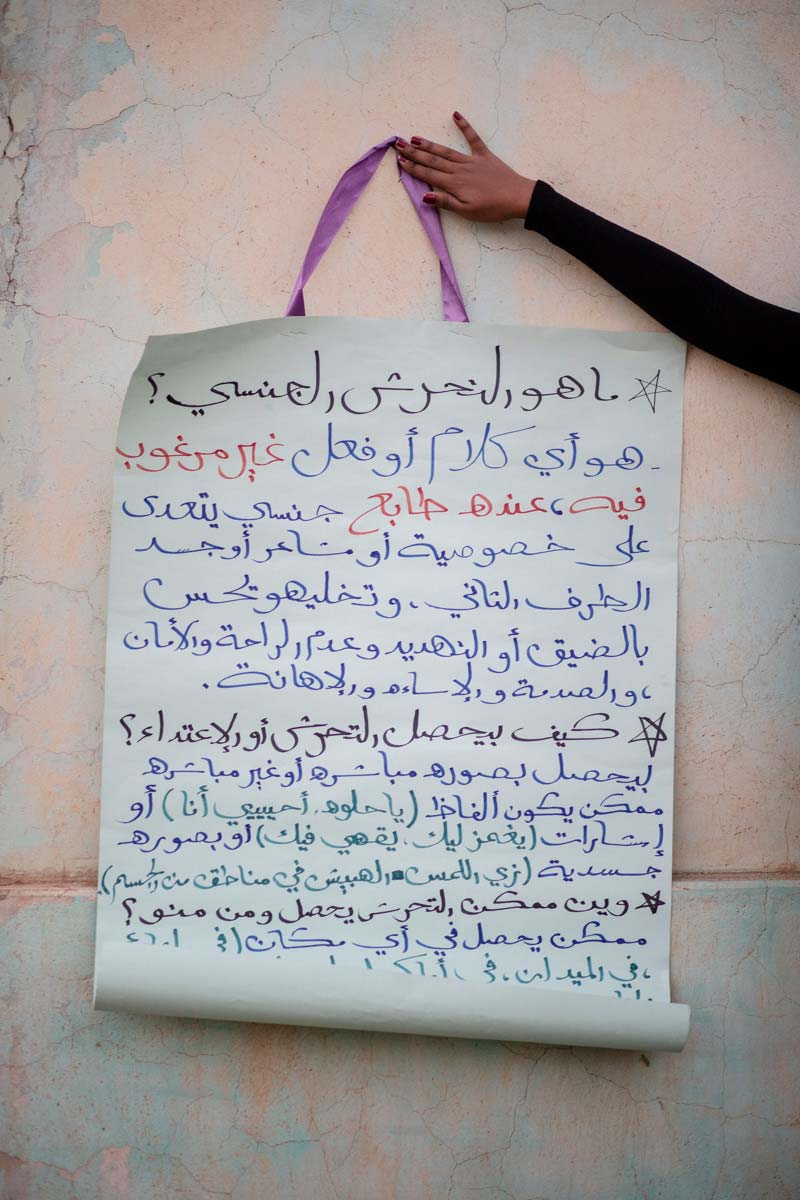
Together with 4 other girls of the organization “Institute for reproductive health and sexual rights”. I did a campaign against sexual harassment at the sit-in area. We made posters with texts focusing on the topics of harassment and sexual abuse. We went in front of the military headquarter; it was a place where a lot of young men gathered. They came very close, asked what we want and surrounded us. The first thing they told us was that if we would cover our hair, harassment wouldn’t happen to us. They started harassing us, while we wanted to raise awareness about this topic. It was very threatening. For me it wasn’t a negative experience, we expected this reaction, we actually thought it would be worse. There were also others, who didn’t just focus on that, and actually started reflecting and discussing about sexual harassment and abuse. Even though we found it very hard, I think it was successful. At least some of the men stopped arguing against us and started listening.
Hiliwah tea seller
“Being a tea-lady means being revolutionary”
Hiliwah
My name is Hiliwah, I am selling tea and Zalabia (sweet fried dumplings) in front of the Nigerian Embassy since 1992. The moment I decided to take action against this regime was when the price of flour more than doubled. A lot of my customers are students, they don‘t have much money and I couldn‘t just double the price of the food I sell. I want to have happy people around me in a relaxed environment. Everybody should enjoy and have affordable food and drinks at my place.
I went to the sit-in because I wanted to support the revolution. I even helped to control the people who entered the camp at the barricades, to make sure nobody brings dangerous objects in. I couldn’t believe that so many people went out to protest. I really liked the atmosphere at the sit-in, there wasn’t any single hungry or thirsty soul, and there was tea and food for everyone.
In Ramadan I prepared Zalabia and tea for iftar (breaking the fasting after sunset). At the sit-in I went from tent to tent and distributed food and tea to the people. I never got back the teapots, but I absolutely don’t care, I lost people in the revolution – who cares about tea pots?
In this revolution women had a very important role. They fought and sacrificed themselves to free this country. Most of the protesters were women, a lot of them housewives. Not long ago I had a discussion about the problem of public transport with a man in a bus. He asked me: “You made this revolution. Why don’t you make another march for better transportation?” I answered: “After we did all this while raising our kids and doing all the work at home it’s your time to support us now.” Even after I said that he stuck to the idea that we should organize new protests. That’s annoying.

